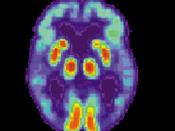A woman plans a detour to do some grocery shopping on her way home, but instead her car seems to drive directly home "by itself." A young man returns home after a workout and tosses his sweaty T-shirt into the toilet. (This was not simply an aiming error. The laundry hamper, his intended target, was in another room.) A woman fills an electric coffeepot with water, plugs it in, and turns it on, but forgets to put in the coffee. A man leaves his desk to get his glasses in his bedroom. By the time he gets there, he forgets what he is looking for and decides to watch television in his room instead. A woman places two bowls on the kitchen counter. She fills one with her breakfast cereal and the other with dry food for her cat. She places a bowl on the floor for the cat, and not until she pours milk on the cat food does she realize that she made a mistake.
We all make errors of this type, but why do they happen? These types of errors can be classified as action slips. In life, many actions are performed automatically, with little attention and thought. Experience and skill tend to go along with behaving automatically and mechanically. Automatic behavior is an efficient strategy - most of the time. It allows us to direct our mental abilities to complex new matters that require more attention.
Most of our actions are largely carried out by subconscious mechanisms. At a conscious level, you may will yourself to do something, like scratch a mosquito bite that is itching. Once you decide, the scratching occurs automatically. You do not have to decide how to scratch. But what about actions that are more complicated? Suppose you plan to stop on...


